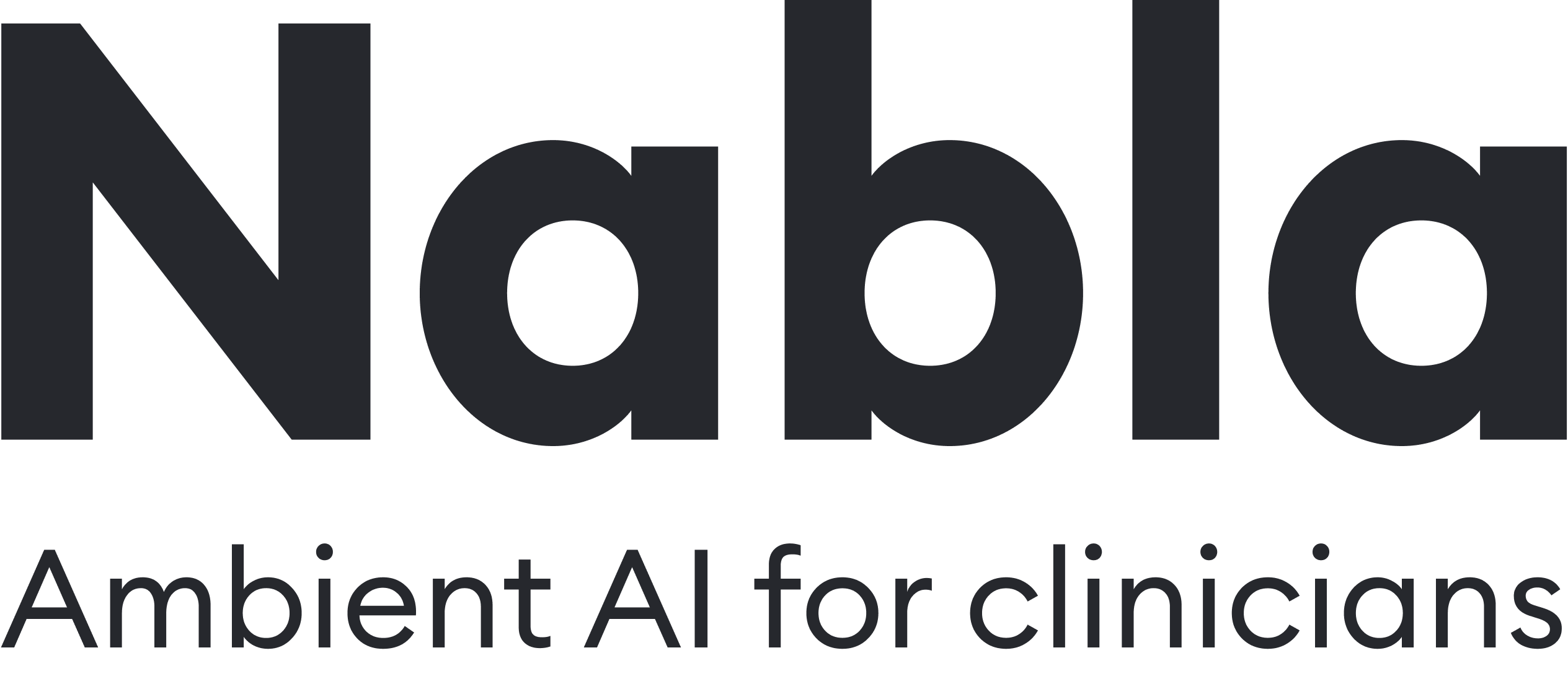In cooperation with | ● | 
|
|
| | | ‘AI has allowed me, as a physician, to be 100% present for my patients.’- Michelle Thompson, DO, family medicine specialist with the University of Pittsburgh Medical Center, on a smartphone-based generative AI tool that records, summarizes and organizes interactions with patients (source: The New York Times)
‘Fix the [healthcare] system, but not by permanently invading my privacy and altering my relationships with my doctors. No, you may NOT record me!’- Anonymous reader reacting to the article cited above
‘We need to design and build AI that helps healthcare professionals be better at what they do. The aim should be enabling humans to become better learners and decision-makers.’- Mihaela van der Schaar, PhD, director of the Cambridge Centre for AI in Medicine at the University of Cambridge in the U.K. (source: The Guardian)
‘Since the start of the COVID pandemic, the number of incoming electronic messages to our providers has increased by 57%. [So we’re piloting] a generative AI tool that turns incoming messages into editable drafts. This helps providers save time while also getting them past blank screen syndrome.’- Frank Liao, PhD, director of AI, emerging technologies and software engineering at UW Health in Madison, Wisc. (source: WISN-TV)
‘AI offers great potential, [but] integrating it into medical workflow software requires caution. While potentially impeding progress, government regulations play a crucial role in protecting patients and society.’ - Rob Versaw, MBA, vice president of innovation & growth at Envista Holdings (source: Forbes)
‘Healthcare providers are increasingly faced with multiple vendors claiming to have AI. To what extent is [each vendor’s] AI learning from your data—or using that data to train models for their other customers?’- Damian Chung, EdD, business information security officer & healthcare CSO at Netskope (source: BankInfoSecurity)
|
| | | |
| |
| | | Buzzworthy developments of the past few days. - Watch for the anticipated healthcare AI ‘nutrition label’ to begin appearing late this year or early next. The add-ons will let end users know how each algorithm works to support clinical decision-making. Part of this will be showing what data the AI was trained on. Going by public comments submitted to HHS during the proposal’s review period, feelings about the forthcoming final rule run the gamut. Some medical groups say the rule as it now stands doesn’t go far enough. Others say it overreaches. FedScoop has the gist.
- Close to 1 in 3 American adults are OK with AI leading a primary care appointment. But change the question to AI-led therapy, presumably of the mental health variety, and the collective comfort level drops to 1 in 4. So reports the crowdsourcing data outfit Outbreaks Near Me, which partnered with Survey Monkey to put such scenarios in front of 3,300 U.S. adults. Also intriguing from the findings: Some 34% of respondents expect AI to do better than human clinicians at treating patients without bias. Full results here.
- Two medical journals are seeking submissions on AI in mental health. npj Mental Health Research and npj Digital Medicine are working together to solicit, edit and curate novel research as well as literature reviews and opinion pieces. What all accepted manuscripts will have in common is their looking “beyond feasibility to highlight how AI can be safely, ethically and impactfully utilized to advance the understanding of mental illnesses and deliver better care to patients with these conditions.” Submission deadline is June 22, 2024. Particulars here.
- Nuance and Epic are partnering to make ChatGPT-4 useful and intuitive for provider customers of both companies. The joint offering combines Nuance’s Dragon Ambient eXperience Express (DAX Express) with Epic’s widely installed EHR workflows. Announcement.
- Prescribing meds is easy. But what happens next? Temple Health of Philadelphia is banking on AI startup Dr First (Rockville, Md.) to help clinicians follow up with patients on prescription adherence. The process includes letting patients know in the doctor’s office what the price tag will be at the pharmacy counter. The company says its offering uses “clinical-grade AI” to pull it all off. Details here.
- This is not your father’s doctor’s stethoscope. Eko Health (Emeryville, Calif.) has unveiled a digital model that combines AI software, hi-fi audio and full-color display with a three-lead ECG feature. The company says the device can flag signs of heart disease in just a few seconds. Announcement.
- When healthcare cybersecurity met generative AI. New York-based Cynerio is trumpeting its integration of the technology to improve the performance of its digital security products across data analysis, threat detection and attack response. Announcement.
- Fake worlds, real relief. Researchers in Germany have documented the power of virtual reality for easing physical discomfort and quieting anxiety during a procedure that can cause both—transcatheter aortic valve replacement (TAVR) with only local anesthesia. “VR is an advanced technology that allows for the creation of realistic simulations of a world that can be explored and interacted with freely,” the team reports, adding that the approach “expands the non-drug spectrum of therapy” for pain and nervousness. Journal study here, news summary here.
- Eye-catching investments in healthcare AI:
- Augmedics raises $82.5 million to accelerate adoption of augmented reality spine surgery
- AI and medical imaging data firm Flywheel raises $54M in series D financing
- X-ray-focused AI firm Gleamer raises $29.5M from venture capital firms, radiologists
- BeeKeeperAI Raises $12.1 Million Series A to Accelerate AI Development on Privacy Protected Healthcare Data
- Creating the world’s largest medical imaging library, Gradient Health closes $2.75M round
|
| | | |
|
| |
|
|